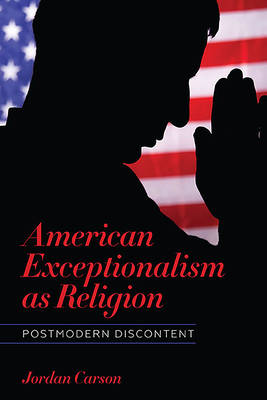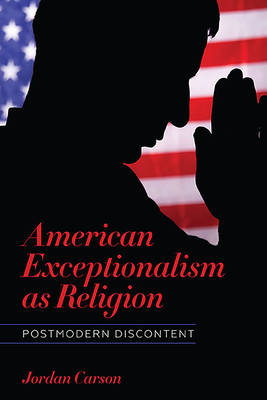
- Afhalen na 1 uur in een winkel met voorraad
- Gratis thuislevering in België vanaf € 30
- Ruim aanbod met 7 miljoen producten
- Afhalen na 1 uur in een winkel met voorraad
- Gratis thuislevering in België vanaf € 30
- Ruim aanbod met 7 miljoen producten
Zoeken
Omschrijving
Jordan Carson's American Exceptionalism as Religion looks at how American nationalist ideologies intersect with religious ones in contemporary literature. Carson traces out how an exceptionalist belief system began to emerge historically with a distorted picture of religious commitment. He then connects this trend to writers such as Don DeLillo, Ana Castillo, Thomas Pynchon, George Saunders, and Marilynne Robinson to argue that these authors dismantle the privatization of religion in their writing and then offer their own alternatives. Their work, he argues, redefines religion in terms of practice and discipline, gauging it by its power to ground and guide behavior, morality, and sociality. As American exceptionalism resurfaces in public discourse, Carson's timely work invites readers to reconsider the nexus of religion, politics, and culture. Carson argues that defining religion according to secularist criteria has insulated ostensibly secular ideologies as well as traditional religion from public scrutiny. DeLillo's, Castillo's, Pynchon's, Saunders's, and Robinson's redefinitions of religion result in a better grasp of how individuals actually live out their religious lives. More importantly, these authors help erect a framework for constructively engaging American exceptionalism and the ideas that support it.
Specificaties
Betrokkenen
- Auteur(s):
- Uitgeverij:
Inhoud
- Aantal bladzijden:
- 234
- Taal:
- Engels
- Reeks:
Eigenschappen
- Productcode (EAN):
- 9780814255940
- Verschijningsdatum:
- 30/11/2022
- Uitvoering:
- Paperback
- Formaat:
- Trade paperback (VS)
- Afmetingen:
- 152 mm x 229 mm
- Gewicht:
- 349 g

Alleen bij Standaard Boekhandel
+ 118 punten op je klantenkaart van Standaard Boekhandel
Beoordelingen
We publiceren alleen reviews die voldoen aan de voorwaarden voor reviews. Bekijk onze voorwaarden voor reviews.











